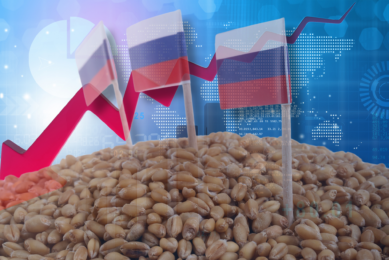EU soy issue: food and feed crisis looms

European farm ministers again failed to take a decision on the allowance of traces of not-authorised genetically modified soybeans into the EU. Industry and trade are worried and fear a market crisis.
Industry and trade groups Fediol (oils & fats), Fefac (feed manufacturers) and Coceral (EU raw material traders) with the European farming association Copa-Cocega, increase their warnings over the severity of the problem of scarce soybean supplies in the EU after agriculture ministers meeting on Monday again failed to take responsibility for dealing effectively with the issue.
Without a clear and effective response – urgently – the problem will get far worse, they say in a joint statement.
The looming crisis in the EU food and livestock feed chain, with a total cost impact between €3.5bn and €5bn, remains.
Since minute traces of US-approved genetically modified maize not yet authorised in the EU were discovered in consignments from the US in June 2009, breaching the EU’s policy of zero tolerance, around 180,000 tonnes of US soy have been denied entry to the EU.
Impossible to guarantee GM-free
Whatever precautions are taken, it is not possible to guarantee the absence of minute levels of foreign materials, other than by ceasing the trade altogether, a problem the EU’s own Joint Research Centre has also recently identified in its report on the GM pipeline.
With the current lack of alternatives, and still no immediate action from the European Commission to propose a technical solution in the form of a so-called “low-level presence (LLP) threshold” for food and feed, this situation will leave Europe’s farmers, livestock producers and agricultural trade, as well as food and feed processing industries, in an extremely precarious position. It also places the global competitiveness of the EU agricultural sector at risk.
Possible lay-offs
The threat of lay-offs in the trade and processing industries, of already vulnerable livestock farmers going out of business, and of consumers being hit through knock-on effects on choice, availability and price all still remain.
“Monday’s Farm Council was a missed opportunity to speed up the GM authorization process and provide an urgent solution to the looming crisis,” the groups say in a press release.
“Yet member states have again left the decisions on individual product approvals to the Commission, which, though entering a period of political uncertainty with less than two weeks of its mandate remaining, should now follow up rapidly on the different GM events at stake.”
The joint industry and trade sector says that regarding LLP, “the ball is once again firmly in the court of Commissioner Vassiliou, who must do what she has consistently resisted doing – come forward urgently with a proposed technical solution on zero tolerance for food and feed. Without it the situation could prove explosive for the whole food and feed chain.”











